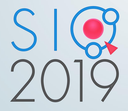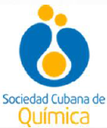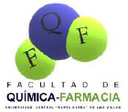Executive Secretary

VII Simposio Internacional de Química 2019
SIQ 2019
Streptococcus pneumoniae is a Gram-positive bacterium that has been related to important diseases such as meningitis and pneumonia. The continuous bacterial resistance against antibiotics demands the development of other strategies. In this context, carbohydrate based vaccines and especially conjugate vaccines have received great attention, as they are able to develop a potent immune response, including immune memory against these pathogens. Polyvalent conjugate vaccines are necessary to insurance protection specially in bacteria containing multiple serotypes, such as S. pneumoniae. On the other hand, the employment of multivalent unimolecular glycoconjugates could avoid the epitopic suppression phenomenon caused by high carrier loads in polyvalent vaccine formulations. This work describes a new synthetic strategy based on the use of the Ugi 4-component reaction for the simultaneous conjugation of the functionalized capsular polysaccharides of Streptococcus pneumoniae serotypes 7F, 14 and 18C to the carrier protein tetanus toxoid. The obtained bivalent glycoconjugates 7F-14-TT and 18C-14-TT showed a specific recognition by both anti-CPs antibodies, and induced a T-dependent response against both CPs. The antigenic and immunogenic behavior of these bivalent conjugates was equivalent to those of its monovalent conjugates 7F-TT, 14-TT and 18C-TT. So far, this is the only bioconjugation method that enables the incorporation of two different polysaccharidic antigens to a carrier protein in a single synthetic step. The main advantage of this multicomponent bioconjugation is that allows for a more straightforward preparation of multivalent glycoconjugates, including multicomponent self-adjuvanting vaccines.
Streptococcus pneumoniae is a Gram-positive bacterium that has been related to important diseases such as meningitis and pneumonia. The continuous bacterial resistance against antibiotics demands the development of other strategies. In this context, carbohydrate based vaccines and especially conjugate vaccines have received great attention, as they are able to develop a potent immune response, including immune memory against these pathogens. Polyvalent conjugate vaccines are necessary to insurance protection specially in bacteria containing multiple serotypes, such as S. pneumoniae. On the other hand, the employment of multivalent unimolecular glycoconjugates could avoid the epitopic suppression phenomenon caused by high carrier loads in polyvalent vaccine formulations. This work describes a new synthetic strategy based on the use of the Ugi 4-component reaction for the simultaneous conjugation of the functionalized capsular polysaccharides of Streptococcus pneumoniae serotypes 7F, 14 and 18C to the carrier protein tetanus toxoid. The obtained bivalent glycoconjugates 7F-14-TT and 18C-14-TT showed a specific recognition by both anti-CPs antibodies, and induced a T-dependent response against both CPs. The antigenic and immunogenic behavior of these bivalent conjugates was equivalent to those of its monovalent conjugates 7F-TT, 14-TT and 18C-TT. So far, this is the only bioconjugation method that enables the incorporation of two different polysaccharidic antigens to a carrier protein in a single synthetic step. The main advantage of this multicomponent bioconjugation is that allows for a more straightforward preparation of multivalent glycoconjugates, including multicomponent self-adjuvanting vaccines.
Sobre el ponente

Lic. Ana Rodríguez






